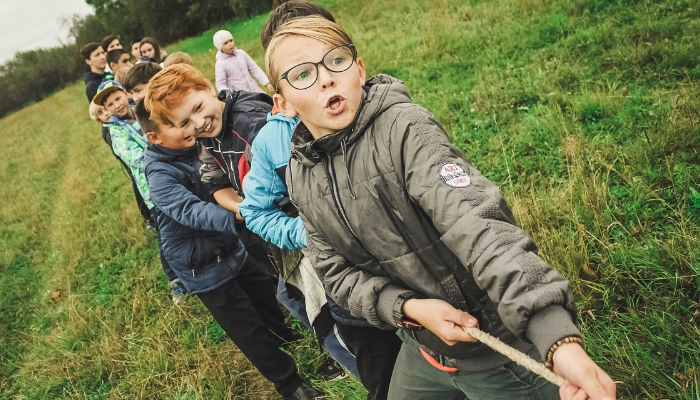
If you’re a participant in the National Disability Insurance Scheme (NDIS), you’ll be well aware of just how challenging it is to find and keep the right supports for you.
The right supports can help grow capacity and achieve plan goals faster, but they can also have a huge impact on mindset – and that affects everything we do, think and experience, and the outcomes we create.
What’s also important is that having the right supports to grow capacity can influence the result of a plan reassessment, and guide plan funding in the future.
We recently caught up with Emma Lloyd, Founder and Managing Director of support coordination business, One Tribe Australia, to learn from an expert about the best ways to source and connect with much-needed supports.
Q. If you’re a participant in the NDIS, what challenges might you face with finding and connecting with new supports?
A. Finding providers and daily living supports with the right mix of knowledge and experience for your diagnosis can be difficult. And often, providers may not have capacity to take on new clients.
Q. Why is finding the right supports so important for building capacity and achieving plan goals? Can it influence future funding?
A. Making sure your supports are the right fit for you will help you to build capacity and reach your plan goals. The right providers will tailor the supports specifically for you, keep them relevant, and frequently review your support plan – noting improvements or decline and pivoting accordingly. And, of course, having the right supports to grow capacity – which in turn creates progress – can have a huge impact on mindset and attitude and affect everything we do and the outcomes we create.
If a participant has a support coordinator, it’s also important that providers communicate with them to share progress and data that can influence the result of a plan reassessment. If there’s evidence that a support is helping to grow capacity, then future funding is more likely to be put in place.
Q. A participant has found a new provider, greenlit their services, and they’ve put a service agreement in place. But then it turns out the new provider is the wrong fit. How can a participant untangle that and where to for them next?
A. They can give notice to cease services as per the terms and conditions set out inside the service agreement.
Their support coordinator or Local Area Coordinator (LAC) can work with them to research new providers until they find the right fit. Once this happens, the support coordinator or LAC can help them transition supports to the new provider, making sure they’re not left without support in the interim.
If the participant is unhappy with a provider’s response or they can’t come to a suitable arrangement to end their agreement, they – or their support coordinator or LAC – can contact the NDIS Quality and Safeguards Commission for advice.
Q. What are your top three tips for finding the right supports and putting them in place for the duration of a plan?
A.
Q. What are the top three questions to ask a provider whose supports you’re considering?
A.
Q. What should every participant know about the providers they’re engaging with?
A. Their company’s history (through a quick Google search, specifically checking for negative reviews or media coverage that may spark red flags), their availability, the professionals that will provide their support, where the support will be delivered, how much they will charge, and who to contact if anything changes.
Q. In rural, regional and remote Australia particularly, but also in many other locations, there’s a real deficit of available providers, which often means that NDIS participants are unable to access the supports they need and are funded for. What do you recommend when this happens?
A. At One Tribe Australia, we’ve engaged with multiple telehealth providers who can potentially provide supports to remote clients. We also encourage our remote clients who are NDIS participants to request respite, short term accommodation or medium term accommodation in their plans, which we can do for them. This can help them get short term support where it’s available, particularly if there’s a period of increased support needs.
We also help our remote clients to research providers as close by as possible, see if additional provider travel can be funded in their NDIS plan, and reduce frequency of support by accessing it less often, but for longer hours (e.g. two six-hour sessions instead of three four-hour sessions).
We also work to link remote clients with local mainstream supports, like doctors, and informal supports, like family and friends, to make sure that someone’s checking in on them and that they’re safe.
Q. In a market where providers are overwhelmed by client load, how do you go about finding much needed supports?
A. At One Tribe Australia, we research and share information with each other, including our knowledge and previous experience with providers. We also make sure we keep up to date with new local supports in the market. This helps us have a rolodex of reliable providers that we can access quickly and easily – knowledge is power.
Q. If you’re a participant who’s underspending funds in your plan because of a lack of available providers, what can you do to make sure you don’t lose them?
A. Ask your support coordinator or LAC to complete a plan progress report to show what’s being done to find suitable supports, and why they’re needed.
We also recommend getting supporting evidence throughout the duration of a plan to evidence challenges with engaging providers. And, we recommend completing a detailed plan review report and collating supporting evidence to explain why funding wasn’t utilised effectively. Again, if you don’t have a support coordinator, your LAC can help you to do this.
For more information about One Tribe Australia, or, if you have support coordination funded in your NDIS plan and are looking for a new support coordinator, visit onetribeaustralia.com.au.


